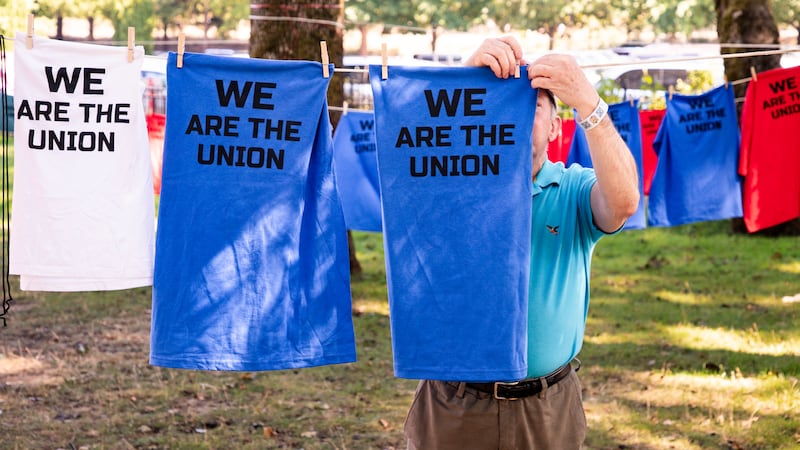The Portland City Council finds itself in a headlock with labor unions over health insurance benefits for city employees.
At issue: The two health insurance plans available to city employees will cost $16.3 million more this year than they did last year, according to city spokeswoman Carrie Belding, should the city maintain all the existing benefits and leave the plans unchanged.
But the City Council is now mulling a controversial plan: lowering benefits in those two plans so that the council only has to eat an 8% cost increase over last year, rather than an 11.9% cost increase to keep all current benefits. The City Council is expected to vote on the proposal next week.
The unions that represent the majority of the city’s 7,500 employees are fuming over that possibility because it would reduce employee benefits, in part by increasing out-of-pocket costs.
“What this would do is effectively give all city employees a pay cut without their ability to negotiate,” says Isaac McLennan, president of the Portland Fire Fighters’ Association. “In general, you negotiate your benefit plan. This is circumventing that system.”
The City Council held a closed-door executive session on the matter Tuesday morning. According to a top city official present, the members of the City Council agreed that the cost increase must be reduced in order to avoid further straining the budgets of infrastructure bureaus in particular, which are facing especially tight financial restraints this year.
The unexpectedly high health insurance costs were delivered to the city earlier this year as city officials stared down a tight budget cycle with cuts across the board.
Those high estimates were relayed in January to the city’s Labor Management Benefits Committee, a panel made up of labor representatives and city managers. The committee acts as the steward of the city’s insurance plans and makes annual recommendations about how to manage costs. That committee typically flies under the radar.
But this year, the company that negotiates the benefits plans with the health insurance providers on behalf of the city told the benefits committee it was looking at a 14% cost increase from the year before, should the city keep all current benefits. The city’s health insurance broker in the following weeks negotiated with the two health insurers to bring the increase down to 11.9%, on average.
The City Budget Office earlier this year advised bureaus to factor in only a 5% cost increase for benefits plans. When the higher estimates came back, the city was facing a multimillion-dollar budget gulf if it wanted to maintain current benefits.
On March 19, the labor members of the benefits committee shot down various proposals to decrease benefits. It’s rare that the committee can’t reach a consensus on a proposal to send to the City Council.
Despite the unions’ discontent with any cuts to benefits, the City Council is expected to vote on a proposal next week that would bring down the overall cost increase to 8%.
Should the City Council approve the 8% increase, it will still have to find $4 million in this year’s already-tight budget to cover the costs.
Unions unhappy with the proposal include the American Federation of State, County and Municipal Employees Local 189, Professional Technical Employees Local 17, Laborers’ International Union of North America Local 483, and the Portland Fire Fighters’ Association.
Rachel Whiteside, the union representative for PROTEC17, says the benefits committee model worked well for unions for decades. “This year, there was a lack of transparency from the city coupled with not enough time to have values-based discussions,” Whiteside says.
President of AFSCME Local 189 Rob Martineau says the union “recognizes the challenging financial situation our city faces” but also asks “our elected leaders to prioritize its responsibility as an employer and the need for stability during this time.”
But the unions’ leverage here is limited: Their contracts with the city include cost-sharing breakdowns, but do not include benefit coverages. That means the City Council doesn’t have to bargain with unions over the details of benefits, since the unions, for all intents and purposes, hand the benefits committee decision-making authority to determine what to bring to the council.
One union, however, has more sway.
The Portland Police Association, which represents rank-and-file police officers, does have insurance benefits baked into its contract with the city. That means its members must vote to approve any changes the City Council wishes to make. That gives the police union more leverage than the other unions to push back against the City Council should it opt to reduce benefits.
“Our benefits are enshrined in our union contract,” says PPA president Aaron Schmautz. “To change them requires a vote of our membership and a vote of the City Council. A change without that co-equal agreement would require some form of litigation.”
Schmautz says the PPA at this point “doesn’t support the changing of benefits for any city employee” and declined to comment on the PPA’s negotiations with city officials.
